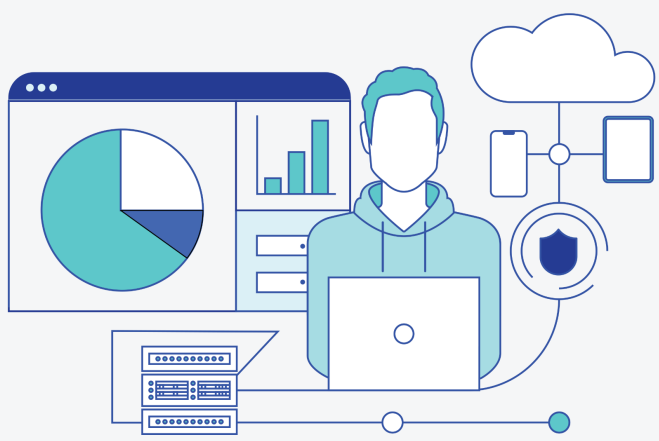What is Software Development?
Software development is the intricate process of designing, coding, testing, and maintaining applications and systems. This field enables businesses and individuals to interact with technology in seamless and productive ways, creating software solutions that solve complex problems and deliver meaningful user experiences.
Why is Software Development Important?
In the age of digital transformation, software is the backbone of almost every industry. Whether it's healthcare, finance, education, or entertainment, software streamlines processes, enhances productivity, and powers innovation. Without efficient, user-friendly software, companies risk losing their competitive edge in an increasingly tech-driven marketplace.
- Improved Efficiency: Automates manual tasks, reducing human error and saving time.
- Customer Experience: Provides seamless interactions, enhancing customer satisfaction and loyalty.
- Scalability: Well-designed software adapts to growth and evolving business needs without sacrificing performance.
- Cost-Effectiveness: Optimizes resources, reducing operational costs over time.
Types of Software Development
Software development spans across various types and disciplines, each serving unique purposes in our everyday lives:
Web Development
Web development involves creating websites and online platforms that provide users with access to information, services, and products. Whether it’s an e-commerce platform, a corporate website, or an interactive web app, web development ensures that the user experience is intuitive, responsive, and engaging.
- Front-End Development: Focuses on the visual and interactive elements of the website, using HTML, CSS, and JavaScript.
- Back-End Development: Deals with server-side logic, databases, and application integration, ensuring smooth performance and data flow.
- Full-Stack Development: Combines both front-end and back-end expertise to deliver complete web solutions.
Mobile App Development
Mobile app development focuses on creating apps for smartphones and tablets. These applications allow users to access services, interact with brands, and complete tasks on the go. A well-designed mobile app delivers both functionality and a seamless user experience, keeping users engaged and satisfied.
- Native Apps: Built specifically for a particular operating system (e.g., iOS or Android) to take advantage of device-specific features.
- Cross-Platform Apps: Designed to work on multiple platforms using frameworks like React Native or Flutter.
- Progressive Web Apps (PWAs): Web applications that offer a mobile-like experience without requiring installation from app stores.
Enterprise Software Development
Enterprise software is tailored to the specific needs of businesses, helping them manage their operations efficiently. From inventory management systems to Customer Relationship Management (CRM) tools, enterprise applications handle complex workflows, ensuring seamless collaboration across departments.
- Enterprise Resource Planning (ERP): Integrates core business processes like HR, accounting, and supply chain management.
- CRM Systems: Helps businesses manage interactions with customers, improving relationships and sales outcomes.
- Business Intelligence Tools: Provides insights through data analytics to drive strategic decision-making.
Game Development
Game development involves creating interactive entertainment experiences, ranging from mobile games to large-scale video games for consoles and PCs. This form of development blends storytelling, art, and programming to deliver immersive, engaging experiences that captivate users.
- Mobile Games: Casual games designed for short, on-the-go sessions.
- Console & PC Games: More complex games that offer deep narratives, rich graphics, and extended gameplay.
- Virtual Reality (VR) Games: Offers immersive experiences, transporting players into fully realized virtual worlds.
How Software Development Works for You
The software development lifecycle (SDLC) ensures that every stage of software creation is methodical and user-focused, delivering a product that meets your exact needs:
- Needs Assessment: Developers gather insights and define the problem, understanding what the software must achieve.
- Design: User interfaces and experiences are crafted, ensuring the final product is intuitive and user-friendly.
- Development: Code is written, features are implemented, and the software is built to specification.
- Testing: Rigorous testing ensures the software is free from bugs and delivers the expected performance.
- Deployment: Once approved, the software is launched and made available to users.
- Maintenance: Regular updates and support keep the software running smoothly and adapting to new requirements.
Examples of Software Development in Action
- Online Shopping Platforms: E-commerce sites like Amazon or Alibaba allow users to purchase products with ease.
- Ride-Hailing Apps: Apps like Uber and Bolt revolutionize urban transportation.
- Health Apps: Platforms like MyFitnessPal help users track fitness goals and maintain healthy lifestyles.
